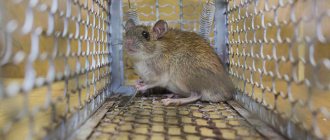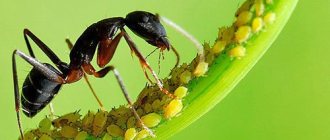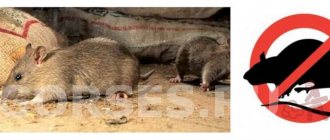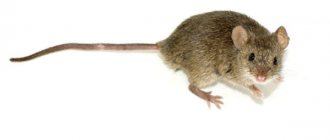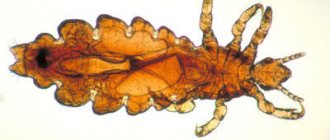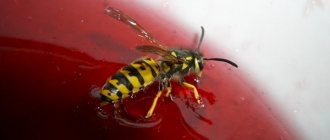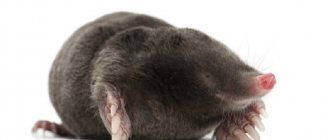Rodent Information
As a rule, house mice, which are synanthropic creatures, settle in a person’s home.
They differ in that they live exclusively next to a person in his home. They constantly follow a person and can be seen on ships and even on airplanes. Therefore, house mice quickly master new human homes, entering them through ventilation systems, through cracks in the floor or walls. When a mouse appears in a house, it is not immediately noticed, since mice prefer to be nocturnal, and during the day they rest in secluded places. When they begin to actively move around the house at night, you can hear rustling and squeaking noises, and that’s when the owners begin to notice the presence of rodents in the house. Field mice breed exclusively seasonally, while mice that live in a house breed year-round. After 2 months of life, they can already reproduce. At the same time, they are able to reproduce offspring literally every month. It’s not difficult to imagine what the mouse population will be like in six months: their numbers are increasing exponentially.
The female herself arranges the nest, dragging various pieces of paper, wool, shavings, etc. to a certain place. During this period, she becomes aggressive and can even bite a person. Since mice are not large in size, they can penetrate through fairly small cracks. If mice are in danger, they are capable of attacking animals that are much larger than them.
In human homes, mice settle mainly in storage areas. With the arrival of summer, they leave human habitation and move to fields, where they build nests at a depth of about 40 cm. With the arrival of autumn, they again begin to attack private houses.
How to understand that pests have appeared in the house
How can you tell if there are small rodents in your home? It is enough to pay attention to the following signs of their presence in the home:
- the appearance of gray soft droppings that harden within a few days;
- musty smell in the house;
- the appearance of holes in the floor and walls, around which there are scraps of chewed paper;
- unusual noises at night: rustling, squeaking.
If you notice several of these signs in your home at once, you can be sure that there are already mice in your home. It's time to take the necessary measures to get rid of them as quickly as possible.
Why do rodents appear?
In the summer they feel great outside, but with the arrival of the first cold days they begin to look for shelter for the winter. The best option for animals is human housing and outbuildings, where it is not only warm, but also has food supplies. A house with a large mouse colony already living next to it is more likely to be attacked by tailed animals.
Animals start and quickly multiply where there is food supply for them: garbage dumps, livestock farms, shops, public catering facilities, abandoned buildings, etc. Their numbers are growing rapidly, space is becoming scarce, so rodents are exploring new territories.
Smells that mice try to avoid
If the premises are not residential (garage, barn, warehouse) or left for a long time, then removing mice from the house is a matter of technique. Like people, they have unpleasant odors:
- burnt rubber,
- burnt wool or fluff,
- kerosene,
- naphthalene,
- cheap Soviet-made perfumes.
In a residential apartment, such “aromas” will harm their inhabitants: harmful combustion decay products will enter the body. But if you enter your home every now and then, you can create a toxic atmosphere.
Important: When setting fire, to avoid poisoning, use gloves and a respirator. Do everything quickly, closing doors and windows. You can enter the room a few days after thorough ventilation.
There are smells that mice love and that can be used to lure them into a trap. For example, they are attracted to the smell of beer. The bottle needs to be placed at an angle and the neck needs to be “paved a path”. At night they will come for a beer, and in the morning you will find them in a bottle. Of course, not all at once, but several individuals will be caught. They will slide down the slippery neck and will not be able to get out. It's not as scary as glue, poison, mousetraps and other terrible devices.
What danger do they pose?
A mouse infestation in itself is a nuisance. These are small, dirty, unpleasant creatures that brazenly invade pantries and nightstands for food. Rodents cause harm not only to food, furniture and the integrity of walls, they pose a danger to human health:
- In some people, products used by mice cause an allergic reaction.
- Close proximity to pests carries the risk of infection with infectious diseases. Mice are carriers of bacteria and germs.
- Gray rodents damage wiring and cable communications, resulting in a short circuit in the network.
- Causative agents of dangerous infections live in the saliva and droppings of pests. With the appearance of mice, fleas enter the room, living in the short fur of basement rodents.
- Mice spoil food products: they “drill” holes in bags of flour and cereals, eat through packages of pasta, grind seeds, crackers, and bread. Rodents do not disdain vegetables, leaving teeth marks on potatoes, carrots, and cabbage.
After death, the corpses of mice must be removed as quickly as possible, since the cadaverous smell of rodents is toxic to people and can cause severe headaches or poisoning.
When uninvited guests enter residential premises, they damage furniture, books and other products. They make nests in the far corners of pantries, dragging small wardrobe items. Rodents damage shoes, clothes, wallpaper and, among other things, spread a disgusting smell.
How to prevent mice from appearing
Getting mice out of your home is sometimes very difficult, especially if it is a dacha or a private cottage. In most cases, parasites come into the home with the onset of cold weather, when the search for food and warmth becomes urgent. Pests multiply very quickly, and the larger their population, the more time and effort it will take to get rid of them. There are several useful rules that will help avoid infestations of parasites and minimize their spread in residential areas:
- Try to always keep your home clean and tidy. Most often, rodents prefer to move into cluttered rooms with a large number of secluded places. Leftover food, crumbs, left unwashed dishes are a great opportunity to get the necessary food. If you avoid these negative aspects, the risk of parasites is significantly reduced.
- A good method of protection is a metal mesh, which should be buried around the entire perimeter of the foundation. At the same time, it should go approximately one meter deep.
- Do not allow large amounts of garbage and food waste to accumulate and remove it from your home in a timely manner. You should not arrange a landfill near your home, because such places attract parasites.
- In your garden, you need to plant plants whose smell mice cannot tolerate, for example, tansy, mint, and wormwood.
- As soon as you notice that cracks have appeared in the walls, ceiling, or floor, immediately cement them or fill them with polyurethane foam. This will eliminate the possibility of mice entering your home.
Using plants, essential oils and other substances that parasites don’t like to smell will help clear them out of your premises. Ultrasonic repellers are an equally effective remedy that acts quickly. The cat catches the mouse or scares away the pest with its smell. From the list of remedies presented, you can choose the most suitable and effective one.
What are mice afraid of?
This question has not left people for many centuries - mice and rats have always stayed close to human settlements, causing damage to property and spreading deadly diseases. However, in the meantime, methods of fighting rodents have also evolved - people have gradually learned to eliminate uninvited guests, and with them the troubles that they can cause.
It was already mentioned above that mice become the most active in the fall, when their mass migration is observed closer to villages and cities in search of food and shelter. To prevent mice from staying in your home for a long time, it is important to carefully observe hygiene rules. Where there is no food left on the tables, no crumbs on the floor, and all food is sealed in bags or hidden in the refrigerator, mice do not stay long. In addition, it is necessary to take care of the dishes that remain after the meal - they should be washed immediately, and not left overnight or longer in the sink. There are also natural factors and conditions that become unfavorable for rodents. Among them:
- Lack of water . Water is a must for rodents to live. If for one reason there is no access to water, the rodents die within 4-5 days;
- Lack of food - the number of colonies decreases over a longer period than from dehydration - rodents die within a month in the absence of food;
- Cold . This factor has little effect on the animals themselves. But for the reproduction cycle - directly. In a human home, rodents are able to reproduce 10 times a year, whereas in natural living conditions - only 2-3 times;
- Cat - capable of eliminating up to 1-3 mice in one night. It is known that mice are afraid even of cat smell (urine), so they try to avoid such houses.
Using the scents of natural enemies
It's no secret that rodents are afraid of cats, which are considered their main “thunderstorm.” However, this trend is more true for village cats than for pets living in comfortable apartments.
But should you be upset if your purr runs away in fear from one type of mouse, and you can’t rely on his hunting instincts? No, because you can drive out uninvited gray guests using the smell of a cat, or rather its urine. To do this, you can place used cat litter near the holes or soak rags with urine. Inhalation of ammonia vapor leads to a sharp decrease in the number of mouse offspring, causing the population to die out faster.
However, even more than cats, small rodents are afraid of snakes and rats. For the former, they act as natural food, while the latter fight with them for the same food sources and destroy their burrows. Therefore, mice can smell the excrement of their enemies a mile away and avoid them. You can easily become the owner of this “wealth” in any pet store.
Using these methods in an apartment is not very pleasant, but they are quite suitable for dachas, vegetable gardens and non-residential premises.
What smells repel mice?
Smells are one of the folk methods of fighting mice, which is also the most natural - plants can be used both fresh and dried. A few sprigs of mint or bay leaf are enough and the rodents will leave the home. A good preventative measure is plantings and mint bushes, which become a hedge for rodents.
They also dislike the odors that come from vinegar essence and ammonia - they are applied to cotton balls and placed in the suspected habitats of pests.
How to remove rodents
You can get rid of small pests in your home in a variety of ways that are safe for humans and pets. The most effective in this case will be:
- Pets – cats and dogs. It should be noted that only those species of these animals that prey on rodents repel pests.
- Mechanical traps. They can be purchased at hardware stores or made independently using available materials.
- Folk remedies. This category includes special mixtures used to line rodent burrows, plants that repel pests, as well as household chemicals that are harmless to humans. These products are the most effective, which is why it is so important to know which plants and household chemicals are most dangerous for rodents.
Also, rodents, like many household pests, are influenced by some other environmental factors: sudden switching on of lights, loud sounds, and ultrasound. All of them make the environment in the house unsuitable for such populations and force mice to leave the home.
In order to rid your home of pests, you can use one product or several at once. So that you can do this without any difficulties, let's look at all the methods of controlling rodents in more detail.
Unpleasant odor for rodents
Every owner of a summer house, private house and even an apartment should know what mice can be afraid of in the house. These can be affordable means, so to destroy them it is not necessary to purchase expensive traps, insecticides, and devices.
Through trial and error, it was found that folk remedies with strong odors are excellent for fighting rodents. Plants, wool, liquids, essential oils, and spices can be used as such.
Singed wool
When considering what you can use to repel mice, you should pay attention to an accessible and inexpensive product - singed wool. If the gray inhabitants have settled thoroughly and do not want to leave their home, then this method of eliminating them will be effective and humane.
But first you need to catch the mouse. Then you will need to set the tail on fire and let it go. The rodent will immediately run to its relatives. Gray parasites cannot stand the smell of burning wool. Thus, the mouse will drive away its fellows.
The smell of burning cat fur can scare away a group of mice. It is necessary to trim your mustachioed friend, set the fur on fire and throw it into the rodents’ den. If you don’t have a cat, you can use a skein of woolen thread or a product made from a wool base.
Plants
If you are interested in what mice in the house may be afraid of, you should pay attention to popular folk remedies. There are some plants in nature that can quickly scare away these gray inhabitants.
They have a pungent odor that causes repulsive feelings in the parasites; they quickly leave the burrows and never return.
Peppermint
This plant is considered an effective remedy for fighting mice. It has no harmful effects on health and is safe for people and pets. To eliminate rodents, you can use fresh and dry grass, but the main thing is not to rustle, otherwise they can be quickly scared away.
Peppermint contains essential oils that produce a strong aroma from the herb. For humans it is pleasant, but gray parasites are very afraid of it.
It is enough to spread a few fresh leaves around the perimeter of the room, next to the burrows of rodents, and they will quickly begin to leave their homes and run away from home over long distances. In winter, dried grass and seeds are suitable.
Sagebrush
Wormwood is considered an excellent remedy for repelling gray inhabitants in the house . The plant emits a strong and pungent odor that pests cannot tolerate. Branches of fresh grass are laid out indoors; it is better to place them near places where rodents gather.
Fumigation of the room has a good effect. The wormwood branches must be set on fire and then walked around the house with them. Smoke from the grass will spread, penetrate into cracks, and reach gray parasites even in hard-to-reach places. As a result, the mice will quickly leave the den.
Elder
When looking for what mice are afraid of, you should pay attention to elderberry; the root parts of the plant are used to fight rodents. They have a high content of hydrocyanic acid, which is poisonous to gray rodents. For this reason, the grass is laid down near the habitats of parasites.
Elderberry is often planted on a personal plot, near sheds, outbuildings, and a barn. Groups of gray creatures live here. And the grass can scare them away over long distances.
Coriander
Coriander or cilantro is a herb that many people use as a seasoning for food. It contains essential oils with a pungent odor that repels pests. Mice are very afraid of him. For this reason, coriander can be used to eliminate them from houses or apartments.
Several branches can be placed near norms and places where rodents gather. You can leave the stems and seeds of the plant for the winter; they will retain an odor that will repel mice.
Blackroot
Blackroot or rat-root has a strong effect on the nervous system of rodents. This biennial plant is known as "mouse eater" or "mouse spirit" and has strong raticidal or insecticidal properties.
To combat mice, black root can be used in the following forms:
- juice from leaves;
- fresh leaves;
- decoctions;
- in dried form.
And if plant seeds are scattered near the minks, the mice will leave the room the very next day. The stems can be doused with hot water and hung in the attic or basement.
The seeds will stick to the surface of the rodents' skin, and they will not be able to remove them on their own. All this will lead to the death of the parasites.
Using the contents of the kitchen cabinet
If you don’t have a cat and don’t want to spend money on purchasing plant extracts, ordinary spices available in the arsenal of any housewife will help. The smell will help save supplies from the invasion of gray guests:
- carnations;
- coriander or cilantro;
- red pepper;
- sage;
It is allowed to use powder or seeds of these seasonings. Dry sage leaves, which are best burned, are also suitable. The strong aroma of coffee will also help repel rodents; freshly roasted beans work best.
Also, pests do not like the scent of vinegar, which can be poured into small containers and placed around the room. Although this option is more suitable for protecting cottages from rodents in the winter, since constantly inhaling a pungent odor is not only unpleasant, but also unsafe. The aroma of bleach scattered in the corners is also suitable for the same purpose.
Biological method
The main enemy of mice in nature is the cat. But due to strong domestication, most cats have lost their hunting instinct, so they cannot be assistants in the fight against house pests. In addition, the problem is aggravated by several other factors:
- cats that are too young or small are not able to catch and kill an adult;
- in defense, rodents often bite cats, infecting them with various infections;
- Only a pet living in the house can catch pests, but there are often many restrictions on its maintenance.
The second thing you can do to get mice out of the house is to get a rat. These two rodents do not get along well together, and having a domesticated rat in a cage will repel all other members of the family.
Biological control agents
We have known the fairy tale about what mice are afraid of since childhood. This, of course, is a treacherous cat who only thinks about how to eat the stupid mouse. Indeed, a young and fighting cat is able to cope with a large number of rodents. And if this predator lives in the house, then there is no reason to worry about a mouse invasion. She will catch a few victims, the rest will leave on their own. Interestingly, the cat usually does not eat the mouse, bringing the owner a trophy.
Statistics show that one cat catches up to 60 mice a year, keeping its territory under control. She is a lone hunter who goes through all the hunting rituals, tracking and catching a rodent. But the mustachioed predator can infect the owner with an allergy or infectious disease obtained from mice, for example, toxoplasmosis.
Note: If you take a predator from your neighbors to save you from rodents, of which you already have quite a lot, then it is not a fact that he is able to cope with them. The infestation of mice is “not something he can handle.” In addition, the animal should not be shy. Not all pets exhibit hunting instincts.
Other animals also hunt mice: dogs, ferrets, weasels, and some birds of prey. Your indoor dog, of course, will take part in catching rodents, but you can’t expect much help from other predators, because they hunt in natural conditions.
Physical means
Electric Trap Rat Killer
Conventionally, they are divided into exterminators and repellents. The former are needed to destroy rodents, the latter - to scare away. Conventionally, exterminators are divided into traps and traps. In the first case, the destruction of the rodent occurs at the moment it touches the bait, in the second - after capture. Sometimes traps are intended only to catch a rodent, and the owner will decide for himself what to do with it next.
Traps
Classic mouse trap
Plastic mousetrap
Traps
A standard mousetrap can be made in different ways. The basis of the mechanism is a spring kept in a cocked state. When the rodent takes the bait, the spring straightens and the impact mechanism is activated.
The impact mechanism is not necessarily made of metal. It only takes a little force to kill a mouse, which is why plastic traps have become popular lately. After removing the rodent's corpse, the trap can be cocked again and repeated many times.
This is a simple, convenient and very effective tool. The intelligence of mice does not allow them to understand the danger of such structures, so the use of such mousetraps is very effective.
The disadvantage of such designs is that you will have to deal with numerous corpses of mice , some of which (if the staple successfully hits the rodent's head) will have a very unattractive appearance.
Traps
Sticky traps
Electronic mousetrap Victor
Universal Rat Zapper Trap by Victor
Traps
Traps come in a variety of types, from homemade structures made from plastic bottles to small electronic chambers or holes that electrocute rodents. This group also includes sticky traps coated with especially adhesive compounds, both containing poison and not containing it.
Recently, devices from Victor, which are boxes with a high-voltage source powered by ordinary batteries, have gained great popularity. The mouse is attracted by the smell of the bait, crawls inside and receives an electric shock.
At the same time, unlike traps, there is no mechanical damage to the mouse’s body and there is no need to wipe the floor stained with entrails: the corpses of mice are removed from the trap without physical contact with them. The power of traps can be very different, and they exist in various modifications: not only for mice, but also for rats.
What are rats afraid of and how to get rid of them using folk remedies
From the depths of centuries, various folk remedies have come to us that rats and mice are afraid of. Tailed animals have a very negative attitude towards sharp, intrusive odors; it is with their help that various baits and deterrents are prepared. They especially do not like loud sounds, ultrasounds, cats, traps and other things.
For example, using mothballs you can get rid of rodents and keep your garden unharmed. To prepare the mixture, you need to mix 100 grams of naphthalene powder with 10 liters of sawdust or dry peat. Sprinkle the resulting mass on the tree trunks of fruit trees before winter, and remove everything when the weather warms up.
What are mice and rats afraid of in an apartment?
If you accidentally find one of the rodents in the apartment, immediately try to drive it out, otherwise you risk getting a lot of trouble. For information on how to get rid of a bat in an apartment, read the link:
Thanks to a folk remedy, you can destroy uninvited guests by feeding them plaster. To do this, 20 grams of gypsum are thoroughly mixed with flour (50 grams), a few drops of fragrant vegetable oil are added. The food is placed near places where rodents are most concentrated; for them it poses a mortal danger.
The second way to kill rats at home is to add finely chopped pieces of wine cork to your food. When they find themselves inside the animal’s stomach, they will begin to swell and then become tightly stuck.
Also, in order to permanently get rid of annoying neighbors in the form of rodents, you can effectively use various traps with traps. For example, to catch small specimens, you need to take a glass bottle, pour a couple of tablespoons of homemade sunflower oil into it, shake the container so that all the walls are oiled, and place it at an angle. An unwashed beer bottle can be used with the same success.
What smell do mice and rats dislike? What grass are they afraid of?
Another good folk remedy for repelling animals is Vishnevsky’s ointment, which is used to treat pieces of matter. The fabric is laid out in secluded places, rodents do not like such aromas, they quickly leave the room and will not return for a long time.
As for herbs, pests do not tolerate the presence of the following:
- chamomile;
- tansy;
- mint;
- sagebrush;
- blackroot or rat beetle (rodents are afraid of seeds that cling tightly to their skin; it is enough to plant about 20-50 bushes on an area of several hundred square meters);
- elder.
These plants can be arranged in bunches or hung inside an infected room.
The sound that rats are afraid of?
Due to the fact that rats are afraid of loud noises, screaming music is perfect for expelling them. It is enough to turn it on at full power several times a day for 10-15 minutes.
People also recommend placing an iron basin with kitchen forks, spoons, and knives on the washing machine, then turning on the spin function. The terrifying noise produced, somewhere after the third application, forces pests to look for a new habitat, and gives you a miraculous deliverance.
Another effective way is to use ultrasonic repellers; they are effective, safe, silent, and do not cause any harm to the animals.
Are rats afraid of cats?
Cats are excellent fighters against tailed rodents. According to ongoing research, each of them annually catches up to 57 small individuals. Any cat protects its possessions; it does not allow outsiders to invade. Some eat their prey right away, while others “play” to death. If you tame a wild, hungry cat, it will provide you with invaluable service in catching domestic parasites.
Cats are mainly afraid of rats with gray fur due to their large size, and the pests seem to know this, brazenly walking around the yard in broad daylight. But there are brave pets that always fight with an uninvited guest. Having destroyed all the creatures at home, cats sometimes go to hunt in neighboring areas or nearby fields and forests. Dogs are good at helping to kill large species of rats.
Are rats and mice afraid of water?
Rodents are absolutely not afraid of water, and they can swim perfectly. When caught in a river current, tailed creatures swim as fast as their aquatic counterparts, but at the first convenient opportunity they immediately climb onto land.
Therefore, if you plan to get rid of them using various water traps, you need to take slippery containers with smooth walls and fill them only halfway. So that when the rodent falls in there, he cannot get out, he would have nothing to grab onto with his tenacious claws.
For information on what to do if a rat is found in the toilet, see this article: And instructions on how to make a rat trap with your own hands are here:
Are rats afraid of glass wool and bleach?
It used to be that rats did not like glass wool, that it was deadly to them, but in practice everything is different. Some argue that only Soviet-style glass wool, and of the highest density, can protect against animals. Others cite cases of discovered holes with nests right inside this insulation. There is only one conclusion: either the rodents have mutated and adapted, or the materials they come across are of poor quality. But with all this, it is noted that pests, although they settle inside glass wool, live relatively short-lived, which means there is still hope.
As for bleach, parasites are repelled by the pungent odor emanating from it. So, to be brave, you can leave, for example, an open jar of solution inside the pantry or wash the floors in the room with it. They also advise sprinkling the floor with bleach; the rats’ eyes begin to eat away and they leave.
Ultrasonic repellents
Rodent repeller
Ultrasonic repellers are available in two main types: with ultrasound frequencies up to 50 KHz and up to 75 KHz. It is believed that the latter are more preferable, since mice are able to hear ultrasound up to 75 KHz.
Repellers of the Electrokot series
Repellent "Electrocat Turbo"
Repellers of the Electrokot series
A series of repellers with frequencies up to 50 KHz. They are used to protect buildings with an area of up to 200 square meters. The device is installed on the wall and operates in two modes: day and night. The device has a radiation angle of 110°.
A modified version of the repeller (Turbo) operates in the same frequency range, however, the frequency constantly changes during operation, which creates additional discomfort for rodents. In addition, in addition to ultrasound, this device is equipped with a more powerful transmitter and a bright LED that affects the vision of mice. The area of the room covered by the operating device is 400 square meters.
Tornado Repellers
Repeller Tornado-400
Repeller Tornado-1200
Tornado Repellers
Currently, the series is represented by several models: Tornado-200, Tornado-400 and Tornado 1200. The digital index indicates the operating area of the device. All repellents operate at frequencies above 70 kHz.
The latest model (Tornado-1200) is a semi-professional device. In addition to having the highest power, the emitter also has a circular orientation. Additional options include 7 operating modes and light indication. For ease of operation of the device, a remote control is supplied.
Prevention of mouse infestations
If you have gotten rid of rodents, there is no need to relax. They may visit your home again. Therefore, try to follow a number of simple rules:
- Store products in refrigerators or closed containers out of reach of mice.
- The apartment must be in immaculately clean condition.
- If the house (apartment) is old, then seal all the holes and openings so that “not a single mouse gets through.”
- Place wormwood, mint, or cotton balls soaked in essential oil in the corners.
- Get a mustachioed hunter cat.
Important: If you notice the smell or traces of mice, do not hesitate. You need to take action right away, since the females are very fertile and getting rid of a large mouse family will subsequently be much more difficult.
Sometimes mice cause us sympathy, because they are so cute and fluffy, they have funny habits. There are hobbyists who keep pet mice. But remember that they carry dangerous diseases such as tularemia, leptospirosis, salmonellosis and others. In addition, they need to constantly grind down their incisors, so mice chew on everything: furniture, wires, walls, floors. Their appearance in the house is associated with a lot of troubles. And the methods you just read about will allow you to get rid of “uninvited guests.”
If you find an error or inaccuracy, please select a piece of text and press Ctrl+Enter.
Instincts work in such a way that there are always things that a certain living creature will certainly avoid. A healthy person will experience an overwhelming fear of severe pain and will never intentionally jam his fingers in doors. Similar natural reactions are typical for rodents, and knowing these things will allow you to drive them out of your territory with minimal effort.
Mummifying agent
A new solution on the mouse poison market is a mummifying agent. The toxic drug Best has a detrimental effect on the pest. It poisons the mouse with poison, causing the death of the rodent. However, the animal's corpse does not decompose, but is mummified.
Such mummification prevents the poison from spreading into the environment. The owner of the house will not find a half-decomposed corpse of a mouse inside his basement.
The bait is poured into a flat container and placed in areas where rodents are active. The product can simply be placed on cardboard near the hole.
To destroy a mouse:
- 100 g of product is divided into 4 servings;
- spread the product in areas where the rodent is active;
- for a rat you will need to divide the product into 2 portions.
After 5-6 days, the death of rodents occurs. The product is available in sachets, briquettes, tubes.
Help of essential oils in the fight against rodents
Knowing what smells mice don’t like, you can, if not get rid of them forever, then scare them away for a long time. Many herbs also contain essential oils, but their concentration in dry mixtures is not so high, and therefore the smell is rather weak.
The most effective essential oil with a sharp and persistent aroma that rodents do not like is peppermint oil. Before using it, you need to find holes or holes through which mice enter the house. It is these places that are subject to treatment, which is used in 2 options.
Option 1: Moisten several cotton pads or balls of cotton wool with a mixture of oils. We put the product in the hole and seal it with tape so that the smell does not penetrate into the apartment. The mixture contains: 50 ml. vegetable oil + 20 k. peppermint oil. This composition can be prepared in advance and stored in a tightly closed container.
Option 2: Pour the prepared mixture into a spray bottle, mix thoroughly (shake before use) and spray in the kitchen, along the baseboards, in places that rodents visit most often. The composition consists of 1-15 k essential oil + 300-400 ml. water + 10 ml. alcohol
Note: A one-time treatment will not help; it should be repeated several times. Essential oil will not kill mice, but will only repel them. But if it gets on the pest’s fur, it may die. Then you will find more than just essential oil aromas.
Folk remedies for mice
If you have pets and children, it is not recommended to use chemical mice repellents in the house. In this case, folk remedies will help. They are safe, provided the residents are not allergic to the plants used.
Tansy
Tansy helps cope not only with rodent infestations, but also with insects. Its smell cannot be tolerated by mice, rats, ants, mosquitoes and flies.
Both dry and fresh grass are suitable for eliminating pests. Cut the stems with inflorescences and make small bouquets from them. Tie the stems with strong threads. Hang bunches of tansy in the house, in the attic, out of reach of small children.
Vinegar and ammonia
To scare away uninvited guests, you can prepare a special mixture. You need to mix vinegar and ammonia in equal quantities. Place bay leaves into this mixture and let them soak well. Then spread the leaves around the perimeter of the area.
You can go another way. Pour ammonia into small containers and place them on the site, in close proximity to the house. The only caution: do not use these products in the house and do not allow children to use them.
Vegetable oil
This is a method of catching mice using a plastic bottle. You need to pour a little vegetable oil into the bottle and swirl the container. The oil will lubricate the walls and cover them with a slippery film. It is advisable to put something edible in the bottle that will attract the attention of the rodent.
The bottle must be placed on a stable support, forming something similar to a balance swing. The neck of the bottle is located at the bottom. As soon as the mouse gets into the bottle, there is an advantage at the bottom, and the neck rises up. The mouse will not be able to get out of the trap on the slippery walls.
Granulated sugar, gypsum, oil
This method is not humane. But when there is no way out and other means are not effective, it will help drive mice out of the house. You need to prepare a special mixture. Mix a glass of sugar, a glass of flour. Add 400 gr. gypsum and half a glass of vegetable oil.
Mix the mixture thoroughly and place on disposable plastic plates. Place plates in corners and in rodent habitats.
There is another way using gypsum. You need to combine gypsum and flour in equal quantities. Place the resulting mixture in handfuls in areas where rats and mice live. Place a bowl of water near each bait. The rodent will eat the mixture and drink it with water. Soon the gypsum will harden in the pest’s stomach, which will lead to the death of the animal.
Bucket filled with water
This is a less common way to control rodents at home. Used when there are no other means at hand.
Pour water into the bucket, not adding a little to the brim. Cut a circle out of thick cardboard. Place a cardboard circle in water, and put edible bait on top of it. Place a structure in the form of a ladder against the side of the bucket, along which the rodent will be able to get to the bait. When it is on the cardboard, the circle will turn over. The mouse will end up in the water.
Note!
Some of the listed methods allow you to catch a mouse without killing it. You need to think in advance about where you will put the live rodent. If you are unable to destroy the pest yourself, choose a more humane method.
What sounds are unpleasant for pests?
How to identify the sound that home parasites are afraid of? It's not at all difficult to do this. It should be remembered that mice, like any other pests, are very afraid of all kinds of sharp and loud sounds. They can be scared away by too loud music from a stereo system, a washing machine operating at high speeds, the sound of a hammer drill, and much more.
To remove pests from your apartment, you need to make sure that such sounds are constantly present in the house, otherwise they simply will not give the desired effect. As for the duration of such noise, it can be short. To drive away mice, 15-20 minutes of noise or loud music a day is enough. It is desirable that these noises appear not only during the day, but also at night - then pests will not be able to feel safe.
Important: do not use the presented method if you have cats or dogs at home. Constant noise can be very harmful to their psyche. Also, do not use it under any circumstances if you have small children. In such cases, it is better to use equally effective, but much less noisy means to combat rodents.
Rodents also cannot tolerate ultrasound of certain frequencies. This is exactly what is used in modern devices to repel small parasites. It affects their nervous system, which is why the pests quickly leave the room and never return. This method is considered one of the most humane and effective.
Important: if you decide to fight these parasites in your home using ultrasound, pay as much attention as possible to selecting a special device that repels them. Remember that some types of such equipment can harm your pets, including cats and dogs. Some of them are dangerous even for children. Take the time to ask whether the selected device option is safe for all your household members, and whether it has passed the appropriate certification at one time.
Contacting special services
Quite often, when the owners of a private house do not deal with this problem, so many mice are bred that it is almost impossible to cope with them without a special service. Despite this, not everyone will decide to undergo such a large-scale operation, although the result of this operation will be very obvious. At one time it will be possible to destroy the maximum number of pests.
Chemical rodent control is carried out in several stages:
- First, you need to carefully study the building.
- Secondly, you need to find out where the rodents come from.
- Thirdly, based on the findings, the most effective method of destruction is selected.
- After processing, the results of the measures taken should be assessed.
- Decide on preventative measures to prevent the situation from recurring.
Specialists of special services use pesticides, and several types for greater efficiency.
Does water harm mice?
Almost all types of rodents swim quite well, so they are not at all afraid of water. If you want to get rid of them using just such a product, you will have to build special traps for rodents. They need to be made from deep, smooth, slippery containers half filled with water. The pest will fall into such containers and will not be able to get out of them on its own.
Important: if you have one or two mice in your house, this method can be quite effective. But he cannot cope with a large population of these mammals. That is why, in the event of a parasite invasion, it is recommended to use other methods that have a more widespread impact. To do this, you just need to know what plants and chemicals mice cannot tolerate.
Preventive measures
It is easier to prevent the appearance of rodents than to remove them. It is necessary to constantly protect the house from attacks by parasites and monitor the hygiene of the premises. You should:
- Avoid littering both at home and in the immediate area.
- Do not leave spoiled vegetables, cereals, or scattered grains in pantries or cupboards.
- Clear leftover food from the table in a timely manner and keep the rooms clean.
- Do a weekly general cleaning with bleach.
Examine walls and baseboards for holes and holes. Seal cracks in partitions. As a preventative measure, place poisoned baits in the corners of rooms.
At the first sign of the appearance of mice, urgent action is required. Mice reproduce quickly and are able to populate a room with offspring in a short time.
Wood ash is scattered along the walls of the room. Rodents avoid the mixture that burns their paws. Fumigating the house with sulfur bombs is considered an effective way to remove mice from the house. Folk remedies prevent the appearance and spread of mice. Such methods achieve the disappearance of mice through humanitarian means.
The most effective:
- Peppermint is sown around the house and the leaves are dried in the room. Mice have a negative attitude towards mint scent.
To prevent mice and rats from living in the house, the owners are obliged to keep the premises strictly clean and follow the rules of sanitary hygiene. The appearance of a mustachioed pet in the apartment will be reliable protection against mice. But if rodents have made their way into the house, the owners should not give up. Proven recipes and industrial products will help you quickly deal with the problem of mice.
How to prevent rodents from appearing in the house
So, we figured out what house mice are afraid of. But it is equally important to know how to prevent them from getting into your home at all. To do this you need:
- Monitor the condition of basements (in a private house), walls, regularly check them for the presence of mouse holes. This will give you the opportunity to quickly respond to the appearance of rodents before their population has time to grow.
- Handle food supplies carefully. It should be remembered that it is the smell of food that can attract pests. If you have stores of grain and sugar, you need to go through them regularly, as this is where mice appear most often.
- If you live in an apartment building, monitor the condition of the public basement, since this is where parasites most often appear. If mice have already appeared there, you must stop trying to get them out on your own and immediately call a special service.
- Place bunches of fragrant herbs, such as mint, near the entrance to your home. Rodents will not enter such housing.
Video - an eco-friendly way to control rodents:
Using these recommendations, you can easily protect your home from mice and other small pests. The main thing is to remember to perform them regularly, otherwise they may not give the desired effect.
Other methods
The most ancient method of breeding rats and mice is considered to be the use of their natural enemies - cats, dogs and feathered predators. The main advantage of this method is the absence of direct contact between rats and people. However, the method has its limitations.
So, not every cat is able to cope with annoying rodents. They are best caught by ordinary yard animals without coats of arms, regalia or pedigrees. Only the largest cats with developed hunting skills can cope with an adult rat.
In addition, cats often eat their prey, which can cause infection in your pet.
As for dogs, fox terriers, dachshunds, and Prague rat rats show good rodent-catching skills. They can be trained to catch mice and rats without eating their prey. However, during such a hunt, pets can be bitten by a rodent and infected with dangerous diseases.
There are other methods that give the greatest effect.
Broken glass. It is mixed with any grated, strong-smelling soap. When such a mixture is consumed, the rodent's gastrointestinal tract is damaged and it dies.
To treat technical rooms and cellars, you can use formaldehyde, kerosene or naphthalene.
Bleach poured into burrows has a good effect. However, you need to keep in mind that household members will also have to inhale such a solution, and this is extremely undesirable.
It is a well-known fact: rodents are afraid to move into houses where fires have occurred. Wood ash remaining after combustion has a negative effect on them; it contains alkali, which causes irritation on the paws. Rats and mice lick them off, soon suffering severe irritation of the digestive organs. Under these conditions, they are forced to move to other places.
To remove rats, you can create uncomfortable living conditions for them. This method works in cases where you find rodents in the basement of your home. You should limit uninvited guests' access to food and water, block the entrances to their burrows, and close ventilation holes and pipe sections. It is better to barricade the doors to the cellar with metal sheets. In the absence of food, rodents either die or leave the premises in search of a more favorable living environment.
Liquids with a strong odor
When fighting mice and rats, various liquids are used. They are widely used in the household. They are inexpensive, safe, natural. This method is very effective. But, it is recommended to ventilate the room after use to avoid dizziness and nausea.
Ammonia solution
Ammonia, a chemical compound known for its pungent odor, is a fundamental component of all life forms. Ammonia is sometimes added to drinking water along with chlorine to form chloramine as a disinfectant.
5-10% ammonia solutions are also used as household cleaners, but in this context they should never be mixed with chlorine as they release various carcinogenic and toxic gases. Animals do not like this pungent chemical smell. Disinfection helps get rid of viruses, harmful bacteria and rodents.
Important! Caution is recommended when working with such a substance.
Vinegar
Vinegar is a versatile liquid that is created by fermenting ethanol. The key ingredient is acetic acid, which gives it a sour taste, although other types of acids such as tartaric and citric may be added. Outside of cooking, vinegar has medicinal, household and agricultural uses. Mice are afraid of the smell of vinegar, as it has a very strong, unpleasant aroma.
